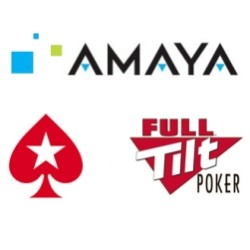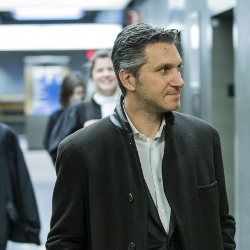PokerStars Deal Sees Amaya Gaming Take On Hefty Debt Load

Amaya Gaming CEO Mr David Baazov, who was born in Israel and grew up in Canada, has been the head of the company since 2006 and over the past few years has steadily been building his technology and gambling software supplying business. Last month, however, the 33-year-old businessman surprised the industry after announcing a deal to buy the Rational Group, parent company of PokerStars and Full Tilt Poker, for a massive $4.9 billion, leaving some analysts wondering if the move comes at too high a risk for sitting in at a high-stakes game of poker.
Always on the cards
In spite of the sudden deal, however, Amaya CEO and chairman David Baazov maintains he was always seeking to extend his reach in the industry, highlighted by a 2012 article in Global Gaming Business Magazine, in which Mr. Baazov stated:
“Amaya was built on the vision of providing content to the gaming industry on a common platform across all media..whether physical, virtual, interactive or mobile.”
Amaya’s acquisition of the Rational Group therefore represent a monumental step on the way to turning Baazov’s little-known technology supplier into the world’s largest publicly-traded online gambling company by the time the deal is finalized in September 2014. As Global Maxfin Capital Inc analyst Ralph Garcea, commented recently:
“David Baazov has done an unbelievable job. It’s just one by one, each transaction transforming the company a bit and giving it more strength. He came out of nowhere.”
Hoping for a US return
PokerStars has been shut out of the US online gambling market since the 2011 Justice Department crackdown, and while other online operators such as 888 and bwin.party are currently at the forefront of the country’s nascent igaming industry, PokerStars is still struggling with a “bad actor’ label for its disregard of the UIGEA.
The USA’s first regulated poker website launched in April 2013, but after a full year of operation revenues have thus far failed to live up to pre-regulation hype, suggesting individual states may now be more willing to welcome back PokerStars. After all, the poker room’s marketing prowess and excellent software was largely responsible for the game’s huge popularity pre-Black Friday, and with the Scheinberg’s agreeing to remove themselves from the company, the prospects of the “bad actor” label being annulled have improved greatly.
Opposition groups
Clearly, Amayay is gambling heavily on the probability other USA states will soon join Nevada, Delaware and New Jersey in passing legalized online gambling. Online poker expansion, however, is in no way certain as less-than-expected revenues have failed to motivate other states to join the bandwagon. In addition, powerful lobbying groups, notably Sheldon Adelson’s ‘Coalition to Stop Internet Gambling’, have been spending millions of dollars trying to get Washington to re-instate its former federal ban on online gambling.
Taken on hefty debt load
Although Amaya Gaming Group Inc. has saddled itself with a hefty $4.9 billion debt load on its way to acquiring the valuable PokerStars brand, with considerable risks still lying ahead, Mr. Baazov is confident the move will payoff handsomely for the company.
“The focus is to grow the sector. The exciting part of this company [Rational Group Ltd] is that it comes with 86 million customers. Not 86 million gamblers specifically; 86 million customers.”
Whereas up until now PokerStars has restricted itself to just online poker games, a global market currently worth around $4 billion, Amaya Gaming is planning on bringing the whole range of casino games to the site thus gaining access to a worldwide market valued at $25 billion. In addition, sports betting, too, may be on the cards which open itself up to a further $17 billion industry.
Asked whether his vision is dependent upon gaining access to the American market, Mr. Baazov, said that the country represented just one part of Amaya’s overall expansion strategy, which also included Europe and Asia. Baazov did, however, envisage movement in the US, explaining:
“From a broader perspective I think that poker is going to grow regardless of the U.S. The game of poker is going to grow not just domestically but internationally. It’s just a question of time, and I see that as more states continue to regulate, you’re going to see more and more banks get involved.”
There will be a dual listing
In terms of managing the hefty debt load, the Amaya Gaming Group is currently considering giving investors the opportunity to own a piece of PokerStars by offering its stock on the London Stock Exchange, in addition to Amaya’s present listing on the Toronto Stock Exchange. As a company statement, read:
“London would be a likely target, however. Given the UK’s central role in the online gambling world, it’s a natural home for Amaya. In addition, many of the world’s largest gaming companies are traded as part of the gambling sub-sector there, including 888, Ladbrokes, William Hill and bwin.party.”
Finally, in response to those analysts concerned about the company’s new debt, Frank Legato, editor of Global Gaming Business, said: “Will Amaya’s other worldwide revenues, including PokerStars, be enough to finance the new debt the company is incurring?” With 86 million users “I’d say it’s a pretty good gamble.”










